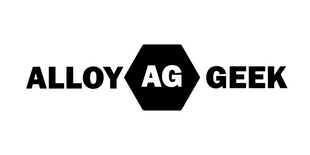Description
Alloy Geek Car Catalyst 30 Certified Reference Material
The Car Catalyst 30 sample stands as a premium Certified Reference Material (CRM), prepared in strict adherence to the standards outlined in ISO Guides 31, 34, and 35. The adherence to these guides ensures the Car Catalyst 30 sample's reliability, traceability, and accuracy, rendering it a reliable standard for analytical measurements concerning car catalysts. Utilized for the calibration of analytical instruments and validation of analytical methods, the Car Catalyst 30 sample assists in ensuring the exactness and consistency of measurements of the chemical compositions, especially the elements lead, palladium, platinum, and rhodium, in car catalysts.
| Element | Certified Reference Value (ppm) |
|---|---|
| Lead (Pb) | 13931 |
| Palladium (Pd) | 233 |
| Platinum (Pt) | 113 |
| Rhodium (Rh) | 135 |
Conforming to ISO Guide 30, the Car Catalyst 30 sample is confirmed as a Certified Reference Material, providing assurance and a high degree of confidence in analytical results. The certified chemical composition of this CRM includes 13931 ppm Lead, 233 ppm Palladium, 113 ppm Platinum, and 135 ppm Rhodium. These precisely determined values offer utmost accuracy and reliability for calibration and method validation processes in analytical studies related to car catalysts. By employing the Car Catalyst 30 sample, laboratories can ensure rigorous quality control, thereby achieving consistent and dependable analytical results in the investigation of car catalysts.
It is necessary to use proper testing procedures when testing this CRM. This includes a requirement for sample cups and film for XRF analysis.
Reference Material (RM): A reference material, or RM, is a material with a known composition or property that is used for informational purposes to look at analytical instruments, methods, or procedures. It serves as a point of comparison to ensure the accuracy and reliability of measurements. Reference materials can vary in terms of their level of characterization and traceability. Some reference materials may have well-defined properties, but they might not have undergone the rigorous testing and certification process that certified reference materials (CRMs) undergo. Reference Material chemical compositions are for information purposes.
Certified Reference Material (CRM): A certified reference material, or CRM, is a type of reference material that has been thoroughly analyzed and characterized using multiple validated methods to determine its composition or properties. The results of these analyses are then used to establish certified values, along with associated uncertainties. CRMs are produced and certified by accredited organizations or laboratories following internationally recognized standards, such as ISO Guide 34 (ISO 17034). The certification process includes interlaboratory comparison and statistical analysis to ensure accuracy and traceability.
In summary, the main difference between a reference material and a certified reference material lies in the level of characterization, validation, and certification. CRMs have undergone a more comprehensive and rigorous testing process, resulting in certified values and uncertainties that can be confidently used for instrument calibration, quality control, and research. Reference materials, on the other hand, can provide a point of comparison but do not have the same level of certification and traceability as CRMs. When accuracy and traceability are critical, certified reference materials are preferred.


